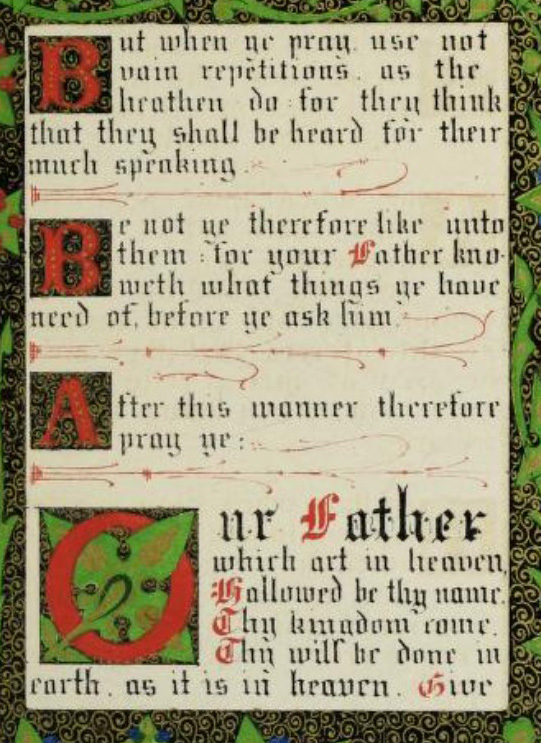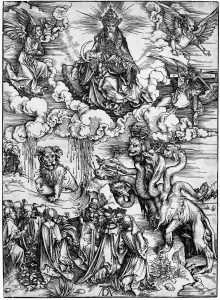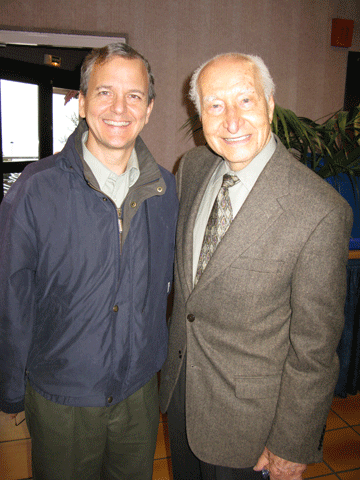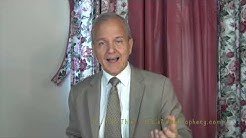
Cemetery in Estonia
COGwriter
Today is the 80th anniversary of an invasion called D-Day–thousands were killed:
June 6, 2024
COLLEVILLE-SUR-MER, France — French President Emmanuel Macron is awarding eleven U.S. WWII veterans with the Legion of Honor, France’s highest distinction, during a D-Day 80th anniversary ceremony.
The men are now 98 to 104 years old.
Macron kissed each of the veterans on both cheeks and warmly greeted them as he pinned a medal on their lapels.
”You came here to make France a free nation. You’re back here today at home, if I may say,” he told them. https://apnews.com/live/d-day-80th-anniversary-updates
It was the largest amphibious invasion in the history of warfare. On June 6, 1944, more than 150,000 brave young soldiers from the United States, the United Kingdom and Canada stormed the beaches of Normandy, France in a bold strategy to push the Nazis out of Western Europe and turn the tide of the war for good. …
John Long, director of education at the National D-Day Memorial Foundation, says that when the memorial was first being planned in the late 1990s, there were wildly different estimates for Allied D-Day fatalities ranging from 5,000 to 12,000. German casualties on D-Day, meanwhile, have been estimated to be between 4,000 and 9,000 killed, wounded or missing. 06/03/19 https://www.history.com/news/d-day-casualties-deaths-allies
Thousands dead from one battle. Millions died in WWII. Billions have died throughout history as it is appointed to humans to die (Hebrews 9:27).
What happens after you die?
Do you have an immortal soul? Did those who professed Christ, in the period shortly after the Bible was completed, teach that humans possessed immortality? Or did they teach that this was something that God would later give? What really happens after death?
Notice some of what the Apostle Paul was inspired to write:
29 For he who eats and drinks in an unworthy manner eats and drinks judgment to himself, not discerning the Lord’s body. 30 For this reason many are weak and sick among you, and many sleep. (1 Corinthians 11:29-30)
12 Now if Christ is preached that He has been raised from the dead, how do some among you say that there is no resurrection of the dead? 13 But if there is no resurrection of the dead, then Christ is not risen. 14 And if Christ is not risen, then our preaching is empty and your faith is also empty. 15 Yes, and we are found false witnesses of God, because we have testified of God that He raised up Christ, whom He did not raise up — if in fact the dead do not rise. 16 For if the dead do not rise, then Christ is not risen. 17 And if Christ is not risen, your faith is futile; you are still in your sins! 18 Then also those who have fallen asleep in Christ have perished. 19 If in this life only we have hope in Christ, we are of all men the most pitiable. 20 But now Christ is risen from the dead, and has become the firstfruits of those who have fallen asleep. 21 For since by man came death, by Man also came the resurrection of the dead. 22 For as in Adam all die, even so in Christ all shall be made alive. 23 But each one in his own order: Christ the firstfruits, afterward those who are Christ’s at His coming. (1 Corinthians 15:12-23)
51 Behold, I tell you a mystery: We shall not all sleep, but we shall all be changed — 52 in a moment, in the twinkling of an eye, at the last trumpet. For the trumpet will sound, and the dead will be raised incorruptible, and we shall be changed. 53 For this corruptible must put on incorruption, and this mortal must put on immortality. 54 So when this corruptible has put on incorruption, and this mortal has put on immortality, then shall be brought to pass the saying that is written: “Death is swallowed up in victory.” (1 Corinthians 15:51-54).
14 Therefore He says:
“Awake, you who sleep, Arise from the dead, And Christ will give you light.” (Ephesians 5:14)
14 For if we believe that Jesus died and rose again, even so God will bring with Him those who sleep in Jesus.
15 For this we say to you by the word of the Lord, that we who are alive and remain until the coming of the Lord will by no means precede those who are asleep. 16 For the Lord Himself will descend from heaven with a shout, with the voice of an archangel, and with the trumpet of God. And the dead in Christ will rise first. 17 Then we who are alive and remain shall be caught up together with them in the clouds to meet the Lord in the air. And thus we shall always be with the Lord. 18 Therefore comfort one another with these words. (1 Thessalonians 4:14-18)
It is proper for Christians to teach and believe that death is like sleep. Christians are to be comforted by God’s plan, which includes the dead being asleep until they are resurrected (an article of related interest would be What Happens After Death?).
How did early Christians understand these passages in the Bible?
Historical records give us many clues.
After the apostles died (John being the last around 100 A.D.), there were early church writers who continued to teach at least parts of what the apostles taught, which is what is in the Old and New Testaments.
Here is something from what is believed to be “the oldest complete Christian sermon that has survived” (Holmes M.W. Ancient Christian Sermon. The Apostolic Fathers: Greek Texts and English Translations, 2nd ed. Baker Books, Grand Rapids, 2004). This Ancient Christian Sermon contains these statements about it:
Now I do not think that I have given any mean council respecting continence, and whosoever performeth it will not repent thereof, but will save both himself and me his councilor. For it is no mean reward to convert a wondering and perishing soul, that it may be saved (15:1).
For if we have received commands, that we should make this our business, to tear men away from idols and to instruct them, how much more is it wrong that a soul which knoweth God already should perish! (17:1).
It was understood that since souls can perish, they cannot be immortal.
Notice something from the Letter to the Corinthians, often called 1 Clement:
On this account He shall inherit many, and shall divide the spoil of the strong; because His soul was delivered to death, and He was reckoned among the transgressors (Chapter 16).
Notice this from Ignatius’ Letter to the Ephesians:
For this end did the Lord suffer the ointment to be poured upon His head, that He might breathe immortality into His Church (Chapter 17).
Especially [will I do this] if the Lord make known to me that ye come together man by man in common through grace, individually, in one faith, and in Jesus Christ, who was of the seed of David according to the flesh, being both the Son of man and the Son of God, so that ye obey the bishop and the presbytery with an undivided mind, breaking one and the same bread, which is the medicine of immortality, and the antidote to prevent us from dying, but [which causes] that we should live for ever in Jesus Christ (Chapter 20).
Ignatius is essentially teaching that Christ suffered to give immortality to the Church and we in the Church, when we properly partake of Passover, can live forever in Christ–otherwise we would die.
Be sober as an athlete of God: the prize set before you is immortality and eternal life, of which you are also persuaded (Ignatius. Letter to Polycarp, Chapter 2).
Polycarp of Smyrna (mid-2nd century) taught that the body and soul were to be resurrected, hence he taught against the immortality of the soul doctrine:
I bless you for because you have considered me worthy of this day and hour, that I might receive a place among the number of martyrs in the cup of your Christ, to the resurrection to eternal life, both of soul and of body, in the incorruptibility of the Holy Spirit (The Martyrdom of Polycarp, 14:2. In Holmes M.W. The Apostolic Fathers, Greek Texts and English Translations. Baker Books, Grand Rapids (MI), 2004, p.239).
Though the Greek Orthodox Church of Antioch now lists him in their succession list, around 170 A.D., Theophilus of Antioch wrote a position that seems to differ from current Eastern Orthodox doctrine on immortality:
When thou shalt have put off the mortal, and put on incorruption, then shall thou see God worthily. For God will raise thy flesh immortal with thy soul; and then, having become immortal, thou shalt see the Immortal, if now you believe on Him; and then you shall know that you have spoken unjustly against Him (Theophilus of Antioch. To Autolycus, Book 1, Chapter VI. Translated by Marcus Dods, A.M. Excerpted from Ante-Nicene Fathers, Volume 2. Edited by Alexander Roberts & James Donaldson. American Edition, 1885. Online Edition Copyright © 2004 by K. Knight).
For if He had made him immortal from the beginning, He would have made him God…so that if he should incline to the things of immortality, keeping the commandment of God, he should receive as reward from Him immortality, and should become God…For God has given us a law and holy commandments; and every one who keeps these can be saved, and, obtaining the resurrection, can inherit incorruption (Theophilus of Antioch. To Autolycus, Book 2, Chapter XXVII. Translated by Marcus Dods, A.M. Excerpted from Ante-Nicene Fathers, Volume 2. Edited by Alexander Roberts & James Donaldson. American Edition, 1885. Online Edition Copyright © 2004 by K. Knight).
But God at least, the Father and Creator of the universe did not abandon mankind, but gave a law, and sent holy prophets to declare and teach the race of men, that each one of us might awake and understand that there is one God. And they also taught us to refrain from unlawful idolatry, and adultery, and murder, fornication, theft, avarice, false swearing, wrath, and every incontinence and uncleanness; and that whatever a man would not wish to be done to himself, he should not do to another; and thus he who acts righteously shall escape the eternal punishments, and be thought worthy of the eternal life from God (Theophilus of Antioch. To Autolycus, Book 2, Chapter XXXIV. Translated by Marcus Dods, A.M. Excerpted from Ante-Nicene Fathers, Volume 2. Edited by Alexander Roberts & James Donaldson. American Edition, 1885. Online Edition Copyright © 2004 by K. Knight).
Probably prior to 180 A.D., Melito of Sardis, a famous church leader and writer, wrote:
He killed death which had put man to death (Melito. Homily On the Passover, Verse 66. Translation from Kerux: The Journal of Online Theology, http://www.kerux.com/documents/KeruxV4N1A1.asp 09/14/05).
And by this, Melito is teaching that Jesus could provide immortality, as humans did not possess it (he obviously is not referring to physical death, as Christians have died throughout history).
Even though he held some heretical views, Irenaeus is considered to have been an important early theologian by Catholics and Protestants (around 180 A.D.) and he wrote that:
Christ Jesus, our Lord, and God, and Saviour, and King…may, in the exercise of His grace, confer immortality on the righteous, and holy, and those who have kept His commandments (Irenaeus. Adversus haereses, Book 1, Chapter 10, Verse 1. Excerpted from Ante-Nicene Fathers, Volume 1. Edited by Alexander Roberts & James Donaldson. American Edition, 1885. Online Edition Copyright © 2004 by K. Knight).
Thus Irenaeus did understand the idea that humans do not possess immortality and that it is a gift of God. And this gift is only given to those that have kept His commandments.
He also understood that the resurrection was physical:
We therefore have formed the belief that [our] bodies also do rise again. For although they go to corruption, yet they do not perish; for the earth, receiving the remains, preserves them, even like fertile seed mixed with more fertile ground. Again, as a bare grain is sown, and, germinating by the command of God its Creator, rises again, clothed upon and glorious, but not before it has died and suffered decomposition, and become mingled with the earth (Irenaeus. Fragments of Irenaeus, Fragment VII. Translated by Alexander Roberts and James Donaldson. Excerpted from Volume I of The Ante-Nicene Fathers (Alexander Roberts and James Donaldson, editors); American Edition copyright © 1885. Electronic version copyright © 1997 by New Advent, Inc.).
And even though he was not part of the true Church of God, Justin wrote:
For let even necromancy, and the divinations you practise by immaculate children, and the evoking of departed human souls, and those who are called among the magi, Dream-senders and Assistant-spirits (Familiars), and all that is done by those who are skilled in such matters —let these persuade you that even after death souls are in a state of sensation; and those who are seized and cast about by the spirits of the dead, whom all call dæmoniacs or madmen (Justin. First Apology, Chapter 18).
The second century apologist Tatian, an associate of Justin, wrote:
The soul is not in itself immortal, O Greeks, but mortal. Yet it is possible for it not to die. If, indeed, it knows not the truth, it dies, and is dissolved with the body, but rises again at last at the end of the world with the body, receiving death by punishment in immortality (Tatian. Translated by J.E. Ryland. Tatian’s Address to the Greeks, Chapter XIII . Excerpted from Ante-Nicene Fathers, Volume 2. Edited by Alexander Roberts & James Donaldson. American Edition, 1885. Online Edition Copyright © 2004 by K. Knight).
Polycrates of Ephesus in the late second century wrote and told the Roman Bishop Victor:
Why need I mention the bishop and martyr Sagaris who fell asleep in Laodicea, or the blessed Papirius, or Melito, the Eunuch who lived altogether in the Holy Spirit, and who lies in Sardis, awaiting the episcopate from heaven, when he shall rise from the dead? (Eusebius. Church History, Book V, Chapter 24, Verse 5. Translated by Arthur Cushman McGiffert. Excerpted from Nicene and Post-Nicene Fathers, Series Two, Volume 1. Edited by Philip Schaff and Henry Wace. American Edition, 1890. Online Edition Copyright © 2004 by K. Knight).
Thus immortality was something to be obtained, not something inherent. And the idea of man’s destiny to become God was known in the second century.
Tertullian was a second century religious leader outside the Church of God. And although he held doctrines that we in the COGs would find to be heretical, he is considered to have been an important early theologian by Roman Catholics. Tertullian wrote:
The resurrection is first, and afterwards the kingdom. We say, therefore, that the flesh rises again, but that when changed it obtains the kingdom. “For the dead shall be raised incorruptible,” even those who had been corruptible when their bodies fell into decay; “and we shall be changed, in a moment, in the twinkling of an eye. For this corruptible”–and as he spake, the apostle seemingly pointed to his own flesh–” must put on incorruption, and this mortal must put on immortality.” in order, indeed, that it may be rendered a fit substance for the kingdom of God. “For we shall be like the angels.” This will be the perfect change of our flesh–only after its resurrection. Now if, on the contrary, there is to be no flesh, how then shall it put on incorruption and immortality? Having then become something else by its change, it will obtain the kingdom of God, no longer the (old) flesh and blood, but the body which God shall have given it. Rightly then does the apostle declare, “Flesh and blood cannot inherit the kingdom of God;” for this (honour) does he ascribe to the changed condition which ensues on the resurrection (Tertullian. Against Marcion, Book V, Chapter 10. Excerpted from Ante-Nicene Fathers, Volume 3. Edited by Philip Schaff, D.D., LL.D. American Edition, 1885. Online Edition Copyright © 2005 by K. Knight).
Thus, he is correctly teaching that we are not now immortal and we are not now fit for the kingdom of God–this occurs after the resurrection.
Hippolytus was a third century religious leader outside the Church of God. And although he held doctrines that we in the COGs would find to be heretical, he is considered to have been one of the greatest early theologians by Roman Catholics.
Hippolytus wrote:
Let us believe then, dear brethren, according to the tradition of the apostles, that God the Word came down from heaven, (and entered) into the holy Virgin Mary, in order that, taking the flesh from her, and assuming also a human, by which I mean a rational soul, and becoming thus all that man is with the exception of sin, He might save fallen man, and confer immortality on men who believe on His name (Hippolytus. Against Noetus, Chapter 17. Excerpted from Ante-Nicene Fathers, Volume 5. Edited by Alexander Roberts & James Donaldson. American Edition, 1886. Online Edition Copyright © 2005 by K. Knight).
Notice that Hippolytus taught that Jesus needed to come in order to confer immortality on men. He would not have to do that if humans were immortal.
Hippolytus also wrote:
For concerning the general resurrection and the kingdom of the saints, Daniel says: “And many of them that sleep in the dust of the earth shall awake, some to everlasting life, and some to shame and everlasting contempt.” And Isaiah says: “The dead shall rise, and those in the tombs shall awake, and those in the earth shall rejoice.” And our Lord says: “Many in that day shall hear the voice of the Son of God, and they that hear shall live” (Hippolytus. On the End of the World, Chapter XXXVI. Excerpted from Ante-Nicene Fathers, Volume 5. Edited by Alexander Roberts & James Donaldson. American Edition, 1886. Online Edition Copyright © 2005 by K. Knight).
Notice that Hippolytus is showing that death is like sleep and the dead must be raised.
Victorinus (ca. late third century) wrote:
“To him that overcomes I will give the hidden manna, and I will give him a white stone.” The hidden manna is immortality; the white gem is adoption to be the son of God; the new name written on the stone is “Christian.” (Victorinus. Commentary on the Apocalypse. Translated by Robert Ernest Wallis. From Ante-Nicene Fathers, Vol. 7. Edited by Alexander Roberts, James Donaldson, and A. Cleveland Coxe. (Buffalo, NY: Christian Literature Publishing Co., 1886.) Revised and edited for New Advent by Kevin Knight. <http://www.newadvent.org/fathers/0712.htm> viewed 12/27/08)
There would be no reason to give immortality if it was possessed upon birth.
Pertaining to peoples in the third century, Eusebius wrote about what some in Arabia thought:
They said that during the present time the human soul dies and perishes with the body, but that at the time of the resurrection they will be renewed together (Eusebius. Church History, Book VI, Chapter 37).
A spurious document apparently from the second or early third century may have been used to introduce the immortality heresy into the Alexandrian Orthodox:
Now, the proof that the soul is immortal will be put past doubt, not from what it says, or from what I hear, but from what I see: for seeing it with my eyes, I shall ever after hold the surest conviction of its immortality; and no fallacy of words or uncertainty of hearing shall ever be able to disturb the persuasion produced by sight. (The Recognitions of Clement, 1.5. In the Ante-Nicene Fathers, Rev. Alexander Roberts and James Donaldson, editors, Vol. VIII. Grand Rapids, Michigan: Wm. B Eerdmans Publishing Company, reprinted 1995. Note: This text is considered to have been spurious and probably not written by Clement of Alexandria. It seems to be a second century document and could have impacted the views of Gregory the Wonder Worker and others.)
Since it is believed that Origen referred to this work c. 231, he would have been familiar with it, though some believe passages may have been added to it in the fourth or even later centuries (Smith T. Introductory Notice to The Recognitions of Clement. ANTE-NICENE FATHERS VOLUME 8. The Twelve Patriarchs, Excerpts and Epistles, The Clementina, Apocrypha, Decretals, Memoirs of Edessa and Syriac Documents, Remains of the First Ages Edited by ALEXANDER ROBERTS, D.D., and JAMES DONALDSON, LL.D. Revised and Chronologically Arranged, with Brief Prefaces and Occasional Notes by A. CLEVELAND COXE, D.D. T&T CLARK EDINBURGH, pp. 73-74).
But it should be noted that in the mid-late third century a mystic often now referred to as Gregory the Wonder Worker, who studied under Origen in Alexandria Egypt, may have been the first of the Greco-Roman bishops to teach that the soul was immortal:
We prove, then, that the soul is simple…that what is simple is immortal…If, therefore, the soul is not corrupted by the evil proper to itself, and the evil of the soul is cowardice, intemperance, envy, and the like, and all these things do not despoil it of its powers of life and action, it follows that it is immortal. (Gregory Thaumaturgus. On the Soul, Chapters 5, 6. Translated by S.D.F. Salmond. From Ante-Nicene Fathers, Vol. 6. Edited by Alexander Roberts, James Donaldson, and A. Cleveland Coxe. Buffalo, NY: Christian Literature Publishing Co., 1886. Revised and edited for New Advent by Kevin Knight. <http://www.newadvent.org/fathers/0608.htm> viewed 06/05/11)
And while this was not commonly accepted for a while, his change did get accepted (though to a significant degree because of others, but also likely some he at least indirectly affected). But it never should have been accepted. In Ezekiel 18:4 the Douay-Rheims Bible (a well known Roman Catholic rendition of scripture into the English language) teaches ” the soul that sinneth, the same shall die” and “The soul that sinneth, the same shall die” in Ezekiel 18:20.
Yet, most who profess Christ in the 21st century do not agree as most believe that humans are immortal. But the Bible teaches otherwise.
That being said, is there hope?
Yes, there is hope coming after the second resurrection.
The Bible tells of a time called the great white throne judgment, which happens after the second resurrection:
11 Then I saw a great white throne and Him who sat on it, from whose face the earth and the heaven fled away. And there was found no place for them. 12 And I saw the dead, small and great, standing before God, and books were opened. And another book was opened, which is the Book of Life. And the dead were judged according to their works, by the things which were written in the books. (Revelation 20:11-12)
So, the Bible tells of judgment for those not judged by God in this life. And that books would be opened. Yes, people will be found guilty of sin (cf. Romans 3:23), but remember, that eternal life will be granted to repentant sinners who accept Jesus (Romans 6:23).
Now, according to David Jeremiah, a well-known evangelical minister, all who come before the white throne judgment are essentially doomed. Here is some of what he wrote:
Revelation 20. The Great White Throne Judgment is an event where those that did not know Jesus as their Savior during their life will come before the Lord and be judged by Christ. …
We see Buddhists and Muslims and Hindus and Protestants and Catholics and Baptists and Presbyterians. … What will happen to these religious people when they stand before God? … Let the Lord Jesus answer that question. “Many will say to Me in that day, ‘Lord, Lord, have we not prophesied in Your name, cast out demons in Your name, and done many wonders in Your name?’ And then I will declare to them, ‘I never knew you; depart from Me, you who practice lawlessness!’ (Matthew 7:21-23) …
If we come to the end of our life and we haven’t accepted Him, the Bible says our name is blotted out of the Book of Life … (Jeremiah D. What is the Great White Throne Judgment in Revelation? https://davidjeremiah.blog/what-is-the-great-white-throne-judgment-in-revelation/ accessed 06/26/19)
Despite David Jeremiah’s last claim, the Bible does NOT say those who were not called in this age are automatically “blotted out” of the Book of Life. Now it is true that many religious people practice lawlessness. To learn more about that, David Jeremiah (and others) should read our free online book: The Ten Commandments: The Decalogue, Christianity, and the Beast.
Sadly, many have been given wrong teachings about the Great White Throne Judgment. Its purpose is not to permanently doom those who had not known the true Christ.
The Bible teaches:
2 … You are a gracious and merciful God (Jonah 4:2)
And that mercy “triumphs over judgment” (James 2:13).
Now let’s notice something in contrast to David Jeremiah’s view from the old Radio Church of God:
Revelation 20: 11-12 says about this RESURRECTION: “. . . and I saw a great white throne . . , and I saw the dead, small and great, stand before God . . .” these people are STANDING-A RESURRECTION–”. . . and the dead were judged out of those things which were written in the books.” JUDGMENT! Even the WORST of the sinners who never had a chance will be in this RESURRECTION, for even the inhabitants of SODOM will be there! “When thy daughters, Sodom and her daughters, shall return to their former estate, and Samaria and her daughters shall return to their former estate . . . then thou (Jerusalem) shall return to your former estate.” (Ezekiel 16:55.) Isaiah 65:20 indicates ALL will live to be a hundred years old in this age at this time. (When Will the TJNCONVERTED Be Resurrected? Plain Truth, February-March 1954)
We in the CCOG concur that sinners will get their opportunity during the time of the great white throne judgment.
Related to dying, the Continuing Church of God (CCOG) is pleased to suggest the following video from our Bible News Prophecy YouTube channel:

Here is a link to our video: Why Do People Die?
While there is sorrow, death fits as part of God’s loving plan for you and all others.
And that includes people killed during D-Day or who died any time in history (see also the free online book: Universal OFFER of Salvation, Apokatastasis: Can God save the lost in an age to come? Hundreds of scriptures reveal God’s plan of salvation).
Some items of possibly related interest may include:
Did Early Christians Believe that Humans Possessed Immortality? What does John 3:16, and other writings, tell us? Did a doctrine kept adopted from paganism? Here is a YouTube video titled Are humans immortal?
Born-Again originally meant being born at the resurrection, not at the time of conversion. A sermon that includes some of this is: John 1-3: Anti-unitarian, Wine, Being Born Again, & Heaven.
The Second Death The New Testament speaks of something called the “second death.” Who will be subject to it? How does it end? Here is a link to a related sermon: First death, Second death.
Study the Bible Course Lesson 15: What is “Hell”? What are the different words translated as “hell” in English? Does Gehenna mean something different than Hades. What happens? What about worms dying not?
What Happens After Death? Is death like sleep, or is that a cultic idea? Can you speak to the dead? Here is a link to a related sermon: What really happens after death?
What Did Early Christians Understand About the Resurrections? Is there more than one future resurrection? Did early Christians teach a physical resurrection? Did early Christians teach three resurrections? Here is a link to a related sermon: Understanding the Resurrections.
Where is the True Christian Church Today? This free online pdf booklet answers that question and includes 18 proofs, clues, and signs to identify the true vs. false Christian church. Plus 7 proofs, clues, and signs to help identify Laodicean churches. A related sermon is also available: Where is the True Christian Church? Here is a link to the booklet in the Spanish language: ¿Dónde está la verdadera Iglesia cristiana de hoy?
Continuing History of the Church of God This pdf booklet is a historical overview of the true Church of God and some of its main opponents from Acts 2 to the 21st century. Related sermon links include Continuing History of the Church of God: c. 31 to c. 300 A.D. and Continuing History of the Church of God: 4th-16th Centuries and Continuing History of the Church of God: 17th-20th Centuries. The booklet is available in Spanish: Continuación de la Historia de la Iglesia de Dios, German: Kontinuierliche Geschichte der Kirche Gottes, French: L’Histoire Continue de l’Église de Dieu and Ekegusii Omogano Bw’ekanisa Ya Nyasae Egendererete.
The History of Early Christianity Are you aware that what most people believe is not what truly happened to the true Christian church? Do you know where the early church was based? Do you know what were the doctrines of the early church? Is your faith really based upon the truth or compromise?
Beliefs of the Original Catholic Church. Did the original “catholic church” have doctrines held by the Continuing Church of God? Did Church of God leaders uses the term “catholic church” to ever describe the church they were part of? Here are links to related sermons: Original Catholic Church of God? , Original Catholic Doctrine: Creed, Liturgy, Baptism, Passover, and What Type of Catholic was Polycarp of Smyrna?, and Tradition, Holy Days, Salvation, Dress, & Celibacy.
Hope of Salvation: How the Continuing Church of God differs from Protestantism How the real Church of God differs from mainstream/traditional Protestants, is perhaps the question I am asked most by those without a Church of God background. As far as some changes affecting Protestantism, watch the video Charismatic Kenneth Copeland and Anglican Tony Palmer: Protestants Beware! [Português: Esperança do salvação: Como a igreja do deus difere da maioria de protestantes]. Several related sermon are also available: Protestant, Baptist, and CCOG History; The First Protestant, God’s Command, Grace, & Character; The New Testament, Martin Luther, and the Canon; Eucharist, Passover, and Easter; Views of Jews, Lost Tribes, Warfare, & Baptism; and How Does the Church of God Differ from Protestantism? These sermons also cover materials not in the book.
Universal OFFER of Salvation, Apokatastasis: Can God save the lost in an age to come? Hundreds of scriptures reveal God’s plan of salvation Will all get a fair chance at salvation? This free book is packed with scriptures showing that God does intend to offer salvation to all who ever lived–the elect in this age, and the rest in the age to come. Here is a link to a related sermon series: Universal Offer of Salvation 1: Apocatastasis, Universal Offer of Salvation 2: Jesus Desires All to be Saved, Mysteries of the Great White Throne Judgment (Universal Offer of Salvation part 3), Is God Fair, Will God Pardon the Ignorant?, Can God Save Your Relatives?, Babies, Limbo, Purgatory and God’s Plan, and ‘By the Mouth of All His Holy Prophets’.



















